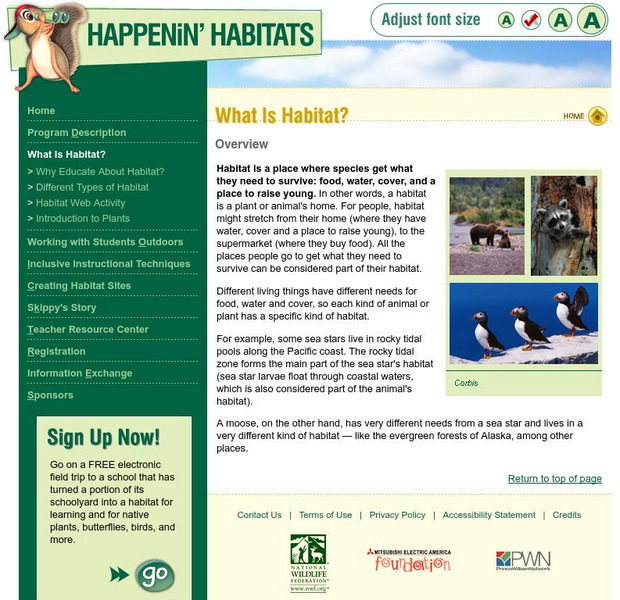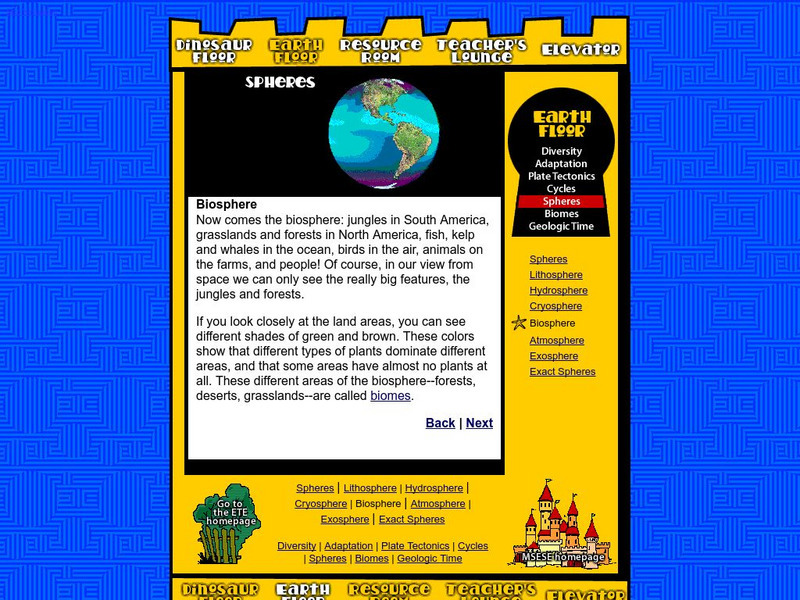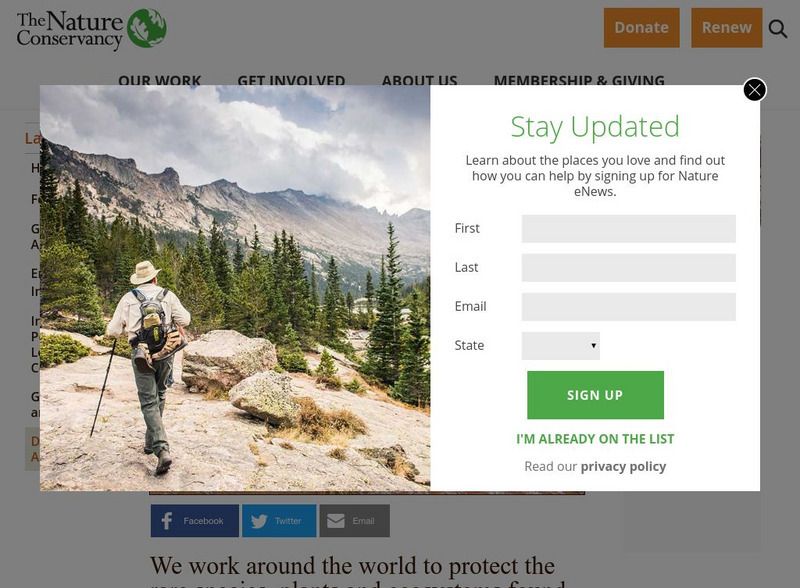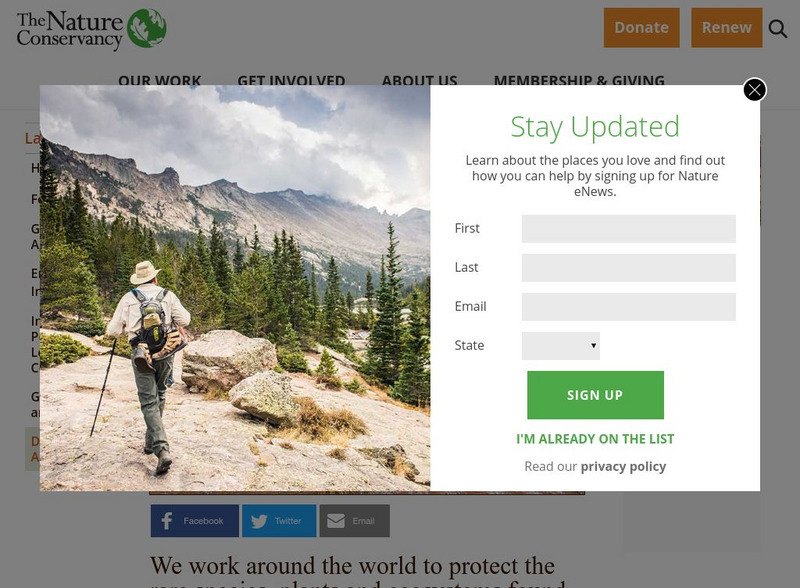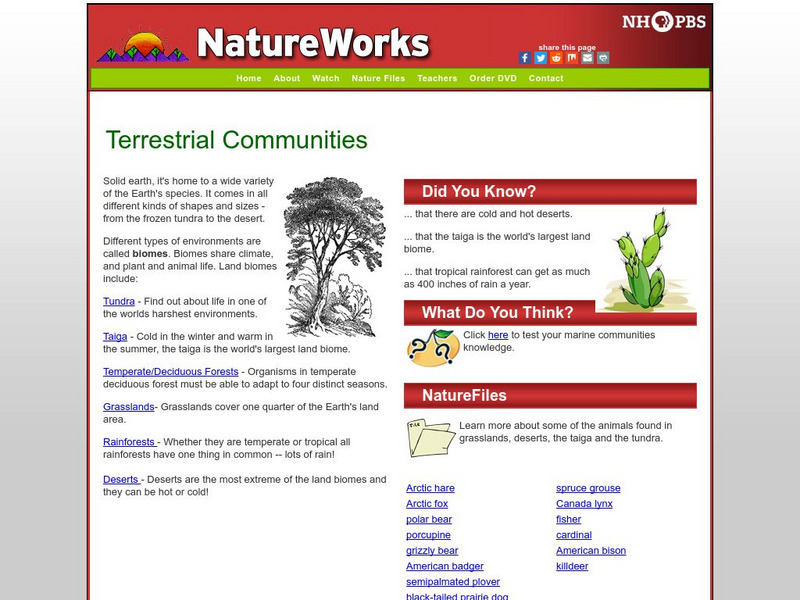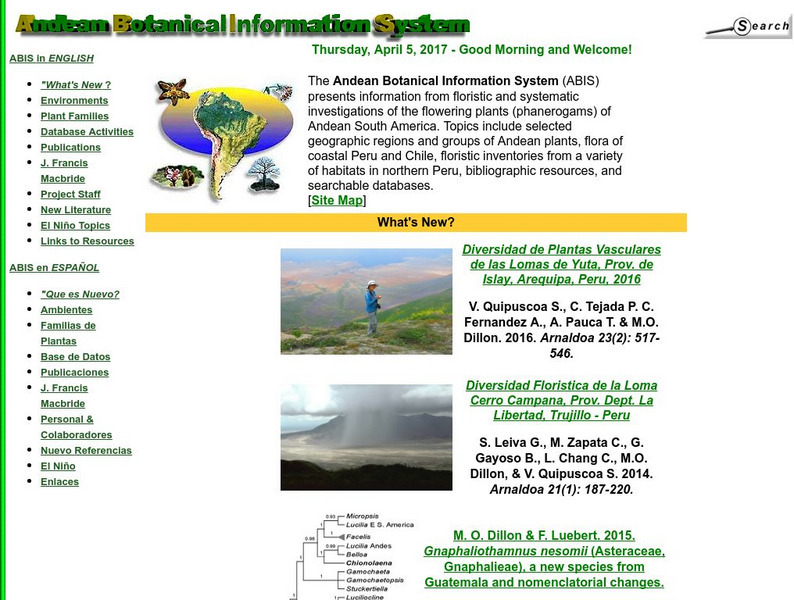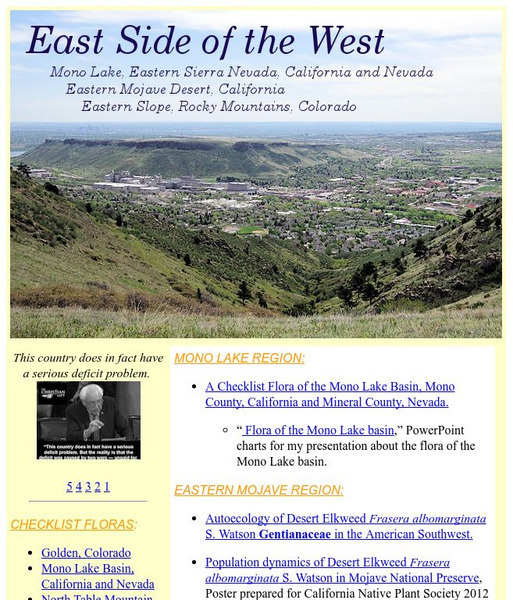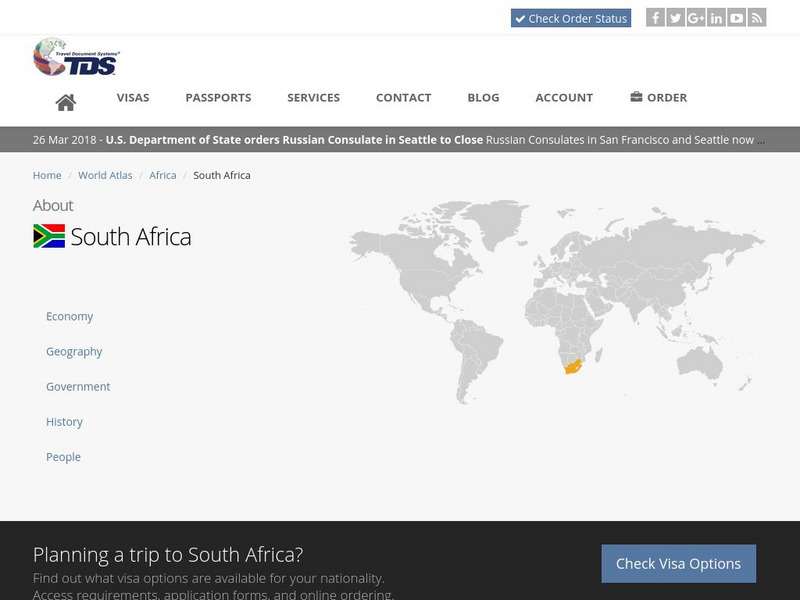Geography 4 kids
Geography4 kids.com: Quick Look at Biomes
Check out the different types of biomes presented.
Bryn Mawr College
Bryn Mawr College: Evolution by Natural Selection
Students develop their understanding of natural selection by analyzing specific examples and carrying out a simulation.
Other
Texas Bob: The Camel Experiment: June 24 August 15, 1860
Journal entries are written by William H. Echols, Brevet Second Army Lieutenant, which told the story of the Army's Camel Experiment in the Texas desert, where camels were tested to determine if they were a superior method of...
eSchool Today
E School Today: Landforms
Understand the formation and geology of different landforms around the Earth.
Other
National Wildlife Federation: Happenin' Habitats: What Is Habitat?
Find an overview of what a habitat is exactly. Then, for more information, click in the left hand menu for different types of habitat: forests, grasslands, deserts, wetlands, and arctic tundra. Authors also offer advice on creating a...
Center for Educational Technologies
Nasa: Classroom of the Future: Spheres: Biosphere
Use this site to learn about the different areas of the biosphere, known as biomes.
Nature Conservancy
Nature Conservancy: Planet Earth: Deserts and Aridlands
The desert areas in the United States that this organization is working to protect are portrayed through photographs and videos, showing the beauty of the landscapes and the diversity of life forms there.
Nature Conservancy
Nature Conservancy: Planet Earth: Deserts
From the Sonoran Desert in North America to Colorado's Great Sand Dunes all the way to Africa's Namib Desert, explore these incredible deserts and discover what scientists are doing to preserve these great lands. Peruse through an online...
PBS
Nh Pbs: Nature Works: Terrestrial Communities
Explore land ecosystems around Earth. Learn about forests, tundra, taiga, grasslands, and deserts.
Scholastic
Scholastic: Study Jams! Science: Ecosystems: Biomes
A video and a short multiple-choice quiz on the topic of biomes, and the six different types that are found on Earth.
Other
Andean Botanical Information System
Great research from the Andean Botanical Information System into the diverse environments and plants of the Andean region of South America, and particularly Chile and Peru. Available in Spanish or English, photographs and written...
Michigan State University
Michigan State University: Global Edge: Algeria: Introduction
Provides statistics, history, politics, and demographics for the country of Algeria located in Northern Africa.
Missouri Botanical Garden
Missouri Botanical Garden: World's Largest Deserts and North American Deserts
Information about the sizes of the world's largest deserts and about the deserts of North America.
PBS
Pbs Teachers:my Life as an Insect in Namib
Identify the harsh characteristics of the Namib Desert and determine the adaptations an insect in Namib Desert must have to survive.
Other
Tom Schweich Home Page: Vegetation in the Desert
This personal site features descriptions and photographic illustrations of California desert vegetation.
Other
Ihm School: Landforms
Student created reports on landforms. Each landform has a brief description and an example. Pictures accompany the reports. Learn more about the landforms that shape our world.
PBS
Pbs Kids: Plum Landing: Don't Step on This
This PBS Kids activity is an extension of a Plum Landing episode featuring the death adder. Students will learn basic information about the death adder; students will also use online drawing tools to design a scene with the death adder.
Ducksters
Ducksters: United States Geography: Deserts
Kids learn about the major deserts of the United States including the Mohave, the Sonoran, the Chihuahuan, and the Great Basin Desert. Geography of the US.
Ducksters
Ducksters: Science for Kids: Desert Biome
Kids learn about the desert biome. The dryest areas on Earth still have plant and animal life.
Ducksters
Ducksters: Science for Kids: World Biomes and Ecosystems
Kids learn about the world's biomes and ecosystems. The network of life and biodiversity needed for all to survive.
Travel Document Systems
Tds: Djibouti: Geography
A brief description of the geography and physical environment of Djibouti. Information is from the CIA World Fact Book.
Travel Document Systems
Tds: South Africa: Geography
A graphic showing the various aspects of the physical environment of South Africa including its climate, terrain, and natural resources. information is from the CIA World Fact Book.
Travel Document Systems
Tds: Qatar: Geography
This information on the physical environment of Qatar is from the CIA World Fact Book. Especially interesting is the note about Qatar's strategic location.






